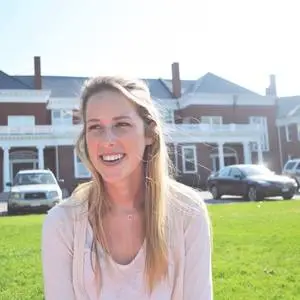Four years ago, the small town of Concord, Massachusetts became one of the first cities in the United States to ban single-use plastic water bottles and opt to use boxed water or reusable water bottles instead. In April 2012, the townspeople voted to ban the use of plastic water bottles and the law passed in January 2013. This new law was created after environmental activists protested the use of the plastic bottles for three years.
The U.S is the highest plastic bottle user in the world, and uses an estimated 50 billion water bottles a year. The local activists in Concord are hoping to reduce fossil fuels and the amount of plastic that end up in landfills by turning to Boxed Water.
The law states that “It shall be unlawful to sell non-sparkling, unflavored drinking water in single-serving polyethylene terephthalate (PET) bottles of 1 liter (34 ounces) or less in the Town of Concord on or after January 1, 2013.” The only exception is for “emergency adversely affecting the availability and/or quality of drinking water to Concord residents.”
Anyone who is caught selling water in the town of Concord will be given a warning on the first offense. On the second the offender will be fined $25 and on the third $50. The official information can be found here.
The townspeople have started buying and using Boxed Water. The ban has been successful as grocery stores can effortlessly order these shipments of Boxed Water and get them on the shelves as either individuals or bundles of 6 or 12. But there is one loophole to the law: anything in a 1.5 liter of water or larger and anything that is flavored can be sold in plastic bottle.
This may not eliminate all plastic waste, but it filters out the unnecessary use of using plastic to distribute water. The packaging that sells 6 or 12 cartons of water also comes in a cardboard box, allowing for all of the materials to be broken down and recycled.
Jean Hill is the creator of this banning of bottled water movement. She is an 88-year-old grandmother, who actually found the idea through the inspiration of her grandson. Jean’s grandson explained to her the severity of the amount of plastic that has wound up in the ocean.
Most of the contamination is not visible to the eye at first. Many fishermen have found that the trash has actually broken down into small flakes and is spreading throughout the world through the major currents. The trash bits are being eaten by sea life, contaminating the food chain and can only be seen if looking closely at the water. Boxed Water is easily able to be broken down and recycled. It’s better for the environment and can be produced without emitting fossil fuels.
The International Bottled Water Association fought Jean and her plan to ban the single-use plastic bottles. Even though Jen won, local stores and merchants were upset with the inconvenience that the ban might make for them.
Their concern with the ban is actually becoming a problem because sellers are trying to sell flavored or 1.5 liter water bottles instead of the smaller bottles. Also, many of the environmental advocates are frustrated that bottled water can be bought just a 5 minute drive away in the bordering towns such as Acton, Bedford, or Sudbury.
Jean responded to this concern and stated that ban was created to make it more attractive to buy Boxed Water and reduce the use of plastic. In order to create change, you must have hurdles in place that will inspire people to look for better options than plastic.
The box that the water is contained in does not affect the taste of the water. There is a waxy protective layer in the box that makes sure the water will not leak or be absorbed. Boxed Water comes in two sizes and is sold in easily found markets all over the country.
They are partnered with the National Forest Foundation and For The Planet. But what’s even better is every time someone posts on social media something for Boxed Water, the company plants a tree. It is a much more environmentally friendly container compared to bottle water.
The ban in Concord is currently successful. The town is trying to guide San Fransisco in their debate about whether or not they will also ban single-use water bottles. Their advice is to create water stations around the city in which people can refill their reusable water bottles.
Concord and Boxed Water are proof that it’s possible to stop using plastic water bottles altogether. While we are drinking clean water out of plastic water bottles, we must remember that that plastic is soiling our fresh water.


